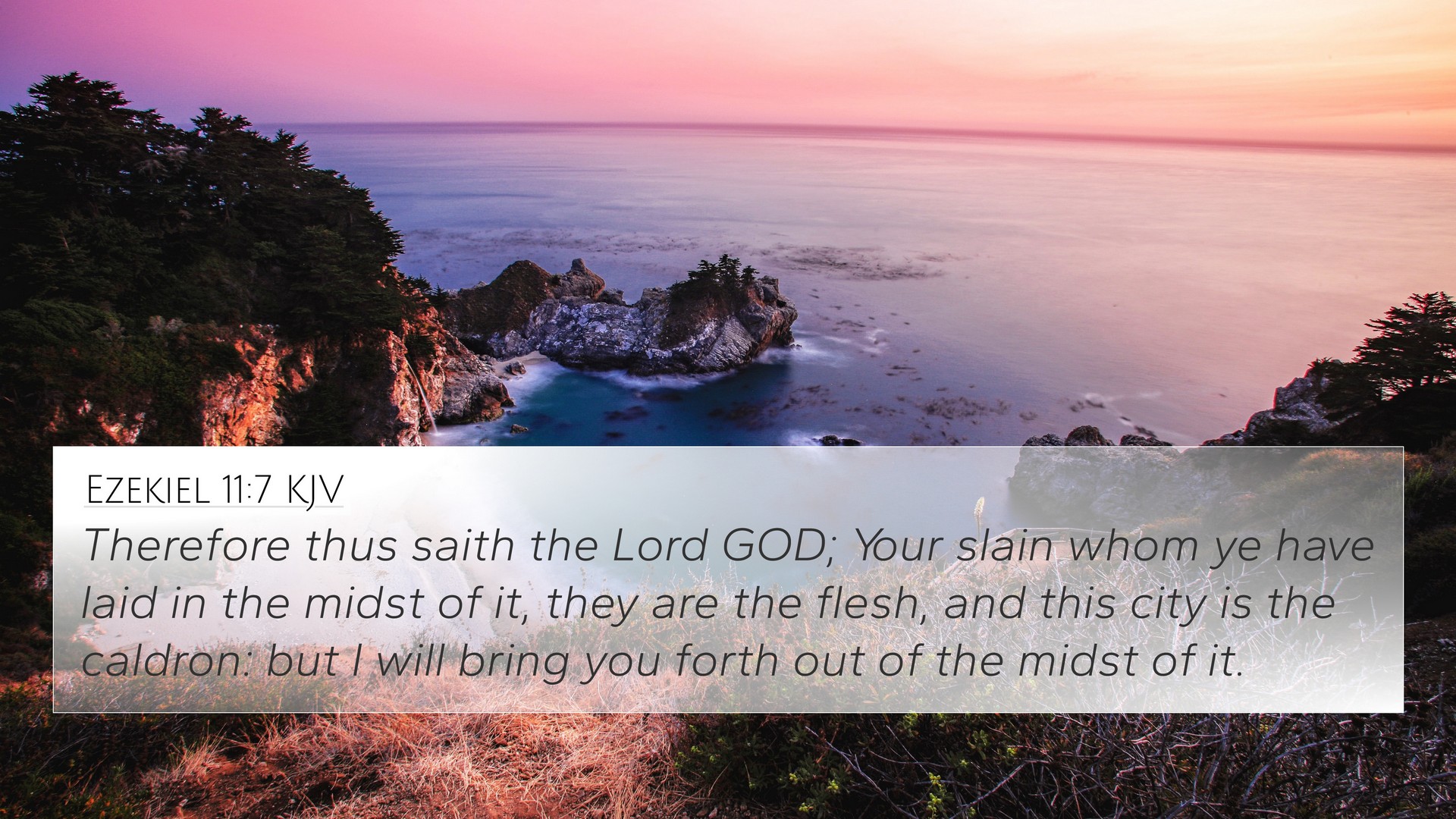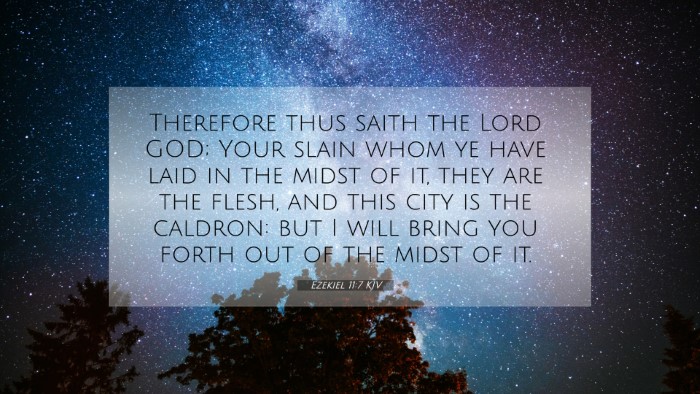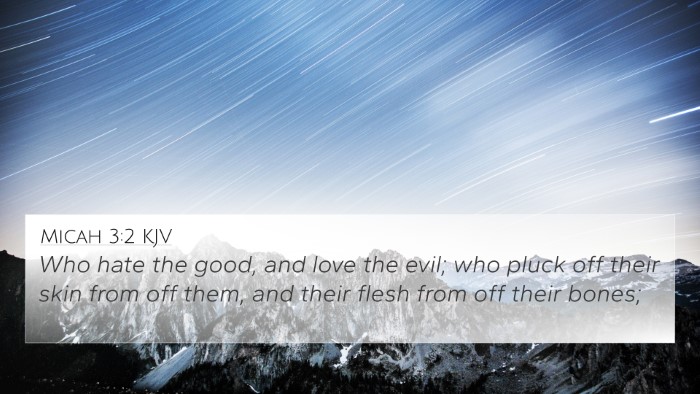Ezekiel 11:7 Meaning and Interpretation
Ezekiel 11:7 states: "Therefore thus says the Lord God: 'You have made your victim the blood in your midst, and you have eaten flesh with the blood.'"
Summary of Ezekiel 11:7
This verse serves as a direct accusation against the leaders of Jerusalem and reflects God's judgment upon them for their corrupt practices. Matthew Henry notes that this condemnation highlights the sinful behavior with which they have oppressed the innocent and sought power for themselves. Albert Barnes emphasizes the metaphor of blood, which represents violence and injustice, while Adam Clarke draws attention to the spiritual implications of consuming flesh with blood, which defies God's commandments.
Key Themes in Ezekiel 11:7
- Judgment of Leaders: God's pronouncement against those who misuse their power.
- Corruption of the People: The communal sinfulness reflected through their actions.
- Spiritual Impurity: The violation of God's law concerning blood and life.
Commentary Insights
The verse acts as a pivotal point in understanding God's displeasure with His people. Matthew Henry remarks that their actions led not just to physical but spiritual ruin, which can be explored through cross-references:
- Romans 3:15-18 - Describes the wickedness of man and the fear of God being absent.
- Leviticus 17:10-14 - Prohibitions against consuming blood, emphasizing the sacredness of life.
- Isaiah 59:3 - A reflection of how sins separate the people from God.
- Jeremiah 22:3 - Calls for justice and righteousness as prerequisites for divine favor.
- Matthew 23:37 - Jesus' lament over Jerusalem highlights the ongoing pattern of rejection of God's prophets.
- Ezekiel 18:30 - God asks Israel to repent and abstain from sinning.
- 2 Corinthians 7:1 - Promoting holiness and purity among believers.
Connections between Bible Verses
Thematic Bible verse connections can offer insight into the ramifications of sin illustrated in Ezekiel 11:7. The collective failure to adhere to God’s laws—particularly concerning justice and the sanctity of life—resonates throughout Scripture.
For instance, comparing this verse to:
- Micah 6:8 - Calls for justice, mercy, and humility before God.
- James 4:17 - Highlights the responsibility of knowing good and failing to act on it.
These venues of scriptural cross-referencing reveal a consistent narrative of accountability expected from God's people. The cry for justice in Ezekiel echoes throughout both the Old and New Testaments.
Understanding through Comparative Analysis
In conducting a comparative Bible verse analysis, it’s essential to observe how different books approach similar themes. Ezekiel's pertinent warning relates closely to:
- Acts 13:10 - The call to bring judgment on deceit and error.
- Proverbs 1:18-19 - A warning against greed and oppression of the innocent.
This inter-Biblical dialogue illustrates that the consequences of sin are far-reaching, affecting both the individual and community, urging readers to reflect critically on their actions.
Practical Applications for Today's Believers
Ezekiel 11:7 is a powerful reminder for modern believers to uphold justice and righteousness. It's a call to avoid complicity in systems that exploit and harm others.
Tools for Bible Cross-Referencing
For thorough study and application, using a Bible concordance or a Bible reference guide can aid in identifying themes and cross-references.
How to Use Bible Cross-References:
- Identify Major Themes: Look for recurring subjects in the Bible that connect with Ezekiel 11:7.
- Map Relationships: Use a chart or outline to visualize connections from this verse to others.
- Research Historical Context: Explore the cultural and historical background of the references for deeper understanding.
Conclusion
In conclusion, striving for a complete understanding of Ezekiel 11:7 through cross-referencing biblical texts deepens one's comprehension of the gravity of sin and the call to justice. The insights gathered from Matthew Henry, Albert Barnes, and Adam Clarke provide a multidimensional view of God's expectations, encouraging believers to reflect on their role within their communities and their relationship with Him.







